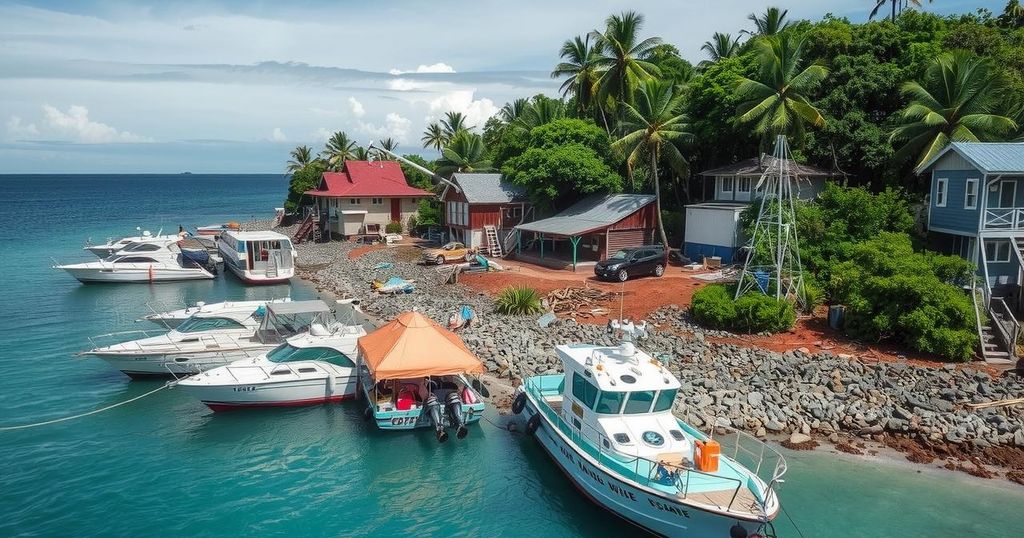Mayotte Island’s Struggles in the Wake of Cyclone Chido
Mayotte Island is grappling with the aftermath of Tropical Cyclone Chido, which has devastated the community. Essential services are strained, hospitals are overwhelmed, and concerns about the death toll persist. The island’s longstanding poverty has compounded the disaster’s impact, with calls for aid and assistance from both religious leaders and the international community. Several casualties include members of the Shia Muslim community.
Mayotte Island, predominantly inhabited by Muslims, continues to struggle in the wake of Tropical Cyclone Chido, which has been described as the most devastating storm to impact the region in nearly a century. Nearly a week post-cyclone, local authorities are tirelessly engaged in efforts to assess casualties, restore vital services, and support the affected populace. Reports of extensive destruction reveal that hospitals, already operating under considerable strain, are inundated with patients suffering from various ailments exacerbated by the disaster.
The cyclone has inflicted severe damage across various neighborhoods, complicating the recovery and relief efforts. Many residents reportedly disregarded warnings regarding the storm’s intensity, while a significant number of migrants, concerned about deportation, opted against seeking refuge in shelters. This has led to dire concerns that the casualty count could spiral into the hundreds or even thousands. The situation is particularly exacerbated by the long-standing neglect Mayotte faces as the poorest overseas region of France and the European Union, where 75% of the population lives below the poverty line.
With a population of about 90,000, Mayotte Island is notably characterized by its Muslim and Shia majority, a tradition that has been present since the 15th century. The impact of Cyclone Chido transcends demographic boundaries, affecting the small Christian minority as well. Pope Francis publicly extended his condolences for the victims during his weekly audience, praying for the well-being of those affected in Mayotte.
In light of this tragedy, Grand Ayatollah Sayyed Sadiq al-Husseini al-Shirazi expressed profound sorrow and called for divine mercy for the deceased. He urged believers to mobilize resources and assistance to aid in the recovery of the island and support those who have suffered considerable losses. The appeal reflects a broader communal responsibility to address the devastating repercussions of the cyclone on the populace.
Tropical Cyclone Chido has struck Mayotte Island, a French colony situated in the Indian Ocean and home to a predominantly Muslim population. This cyclone marks the most severe weather event to impact the island in close to a century, revealing underlying vulnerabilities exacerbated by decades of systemic neglect and underinvestment. The socioeconomic conditions on Mayotte are dire, with a significant portion of the population living in poverty, which has left the island ill-prepared for such natural disasters.
In conclusion, Mayotte Island faces an arduous path to recovery following the catastrophic impact of Tropical Cyclone Chido. The incident has highlighted the vulnerabilities of the island’s population, many of whom reside in impoverished conditions that have been exacerbated by the storm. As rescue and relief efforts continue, the international community’s support alongside local initiatives will be crucial in aiding the recovery process for the residents of Mayotte.
Original Source: shiawaves.com




Post Comment